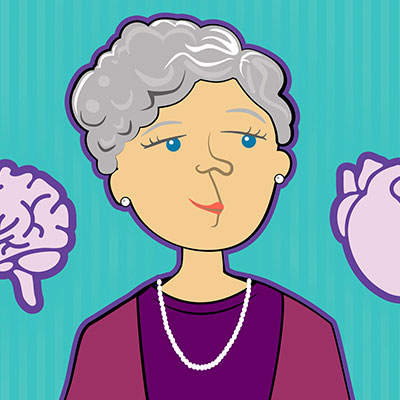8 Common Senior Healthcare Concerns

There are a variety of symptoms, from aches and pains to memory loss to breathing difficulty, that can crop up particularly in seniors. So if you’re a senior or a caregiver for one, keep the following common trouble areas in mind when detecting potential health risks and complications.
Diabetes
A common condition in seniors is diabetes. The American Diabetes Association estimates that one in four people age 60 or older have diabetes. Your doctor can test for diseases of the blood, such as diabetes, in the clinic. Your blood-glucose level and your weight will factor into determining whether you have diabetic conditions.
What You Can Do: There are a variety of ways to curb the onset of diabetes, including regular, moderate exercise, healthy diet, and losing excess body weight.
Obesity
As cases of obesity rise among the entire population, the rate also has risen considerably among seniors. The Centers for Disease Control and Prevention estimates that more than a third of American adults age 65 or older are obese. Excess body fat in seniors can be especially harmful and can lead to related illnesses, as obesity can cause inflammation, spur bone density and muscle loss, and raise the risk of heart and blood diseases.
What You Can Do: There’s no better remedy than adding leaner meats, reduced sodium, and more produce into your diet, paired with regular exercise. In addition, for those seniors struggling with their weight, many health providers can offer one-on-one weight-loss counseling through your Medicare plan.
Bone Loss
Low bone density and bone loss can lead to diseases like osteoporosis, especially in seniors. The National Osteoporosis Foundation estimates that half of women and a fourth of men ages 50 and older suffer from osteoporosis. As seniors age, broken bones caused by osteoporosis become more difficult to bounce back from and can have long-term effects on posture and ongoing pain.
What You Can Do: There are ways to keep your bones strong well into your senior years, including regular exercise, cutting back on smoking and alcohol consumption, introducing more fruits and vegetables into your diet, and ensuring you meet your daily requirements of calcium and Vitamin D.
Memory Loss
Diseases of the brain, such as dementia, increase in likelihood the older you get. Memory loss, struggling to communicate, and lack of focus and attention can be symptoms of dementia and Alzheimer’s disease. The Alzheimer’s Association estimates that 5.1 million Americans aged 65 or older suffer from Alzheimer’s disease. There is also a significantly high rate of depression among seniors, which can often be caused by brain chemistry and stress. Symptoms include feelings of hopelessness and anxiety, fatigue, and trouble sleeping.
What You Can Do: Caring for people suffering from forms of dementia may include helping them keep track of their schedules and appointments, encouraging independence through new organization techniques, and keeping conversations going. Seniors who are suffering from depression can seek help through medication and therapy – and caregivers of depressed seniors should offer support through conversation, attentiveness, and invitations to regular activities.
Cancer
Diseases that affect the body on a cellular level can be especially common in seniors. More than 60 percent of cancers in the United States are found in people age 65 or older. While the location, severity, and symptoms can vary widely, there are several tests that your doctor can perform to detect cancerous tissue. Some warning signs to look out for include unusual bumps, night sweats, or unintentional weight loss.
What You Can Do: Make sure you get regular screenings for cervical, breast, and colorectal cancers once you reach seniorhood. Like most diseases, healthy eating, regular exercise, lowered alcohol and tobacco use, and protecting your skin from the sun reduce your risk.
Heart/Circulation
One of the leading causes of death among seniors is heart-related illness. In fact, the American Heart Association estimates that more than 40 million Americans aged 60 or older have some form of cardiovascular disease. Early warning signs of these diseases can include chest pains and palpitations. Your doctor can test you for a variety of heart- and circulation-related illnesses.
What You Can Do: The best ways to keep your heart healthy and curb the effects of heart disease are to limit your intake of processed, sodium-rich foods and increase your intake of fruits and vegetables; maintain a healthy weight and engage in 2-3 hours of moderate exercise per week; and quit unhealthy habits such as smoking tobacco or drinking alcohol to excess.
Joints
Joint pain tends to increase as you get older, so taking good care of them is key. The Arthritis Foundation estimates that nearly half of people age 65 or older have arthritis, a disease that affects the joints. Determining if you’re suffering from a joint disease can include detecting symptoms, such as stiffness and pain, and talking to your doctor about testing for arthritis.
What You Can Do: There are more than 100 types of arthritis with varying prevention tips – and some are unavoidable, as your risk for arthritis can be related to your family history or gender. But maintaining a healthy weight to take some of the pressure off your joints, quitting smoking, and limiting sugar and alcohol intake can all play a role in preventing joint conditions.
Lungs, Nose and Throat
Respiratory diseases are among the most common causes of death in the United States, and they can present themselves in a variety of illnesses, such as emphysema, asthma, pneumonia, and influenza. Chronic diseases can be caused by smoking, exposure to industrial dust, or family history. And even seasonal illnesses, such as pneumonia and influenza, can be especially harmful to seniors – due to aging, your immune system weakens and it becomes more difficult to fight these diseases.
What You Can Do: For starters, if you’re a smoker, quit. It’s the leading cause of respiratory diseases. It also helps to wash your hands regularly and avoid others suffering from seasonal illnesses like influenza. There are additionally vaccinations available for some respiratory illnesses, so stay up to date on your shots. Sources: American Diabetes Association, NPR, Centers for Disease Control and Prevention, National Osteoporosis Foundation, National Institute of Mental Health, Alzheimer’s Association, American Society of Clinical Oncology, American Heart Association, Arthritis Foundation

